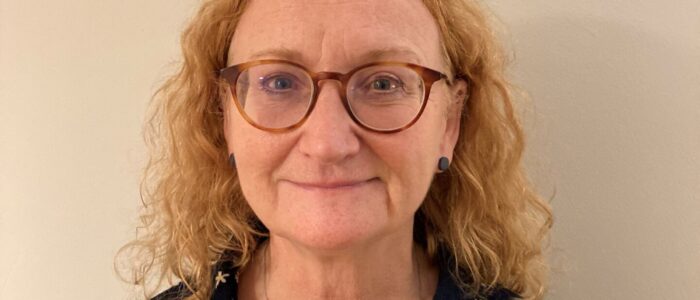Language Project Makes a Positive Difference to Stroke Survivors
A 12-week project, which aims to support the recovery of people living with a language and communication disorder linked to stroke, is having a positive impact for people in Forth Valley.
Chest Heart & Stroke Scotland is working in partnership with NHS Forth Valley’s Speech and Language Therapy Team on the ‘Living Well with Aphasia’ project. Aphasia is when someone has difficulty with their language or speech – usually following a stroke or brain injury. People with aphasia may find it hard to speak, read, write, understand language or use numbers. It can be a very frustrating and isolating condition.
The course focuses on giving stroke survivors the information and resources to help manage the condition themselves.
It is the first aphasia self-management course developed by Chest Heart & Stroke Scotland with the aim of making it available across Scotland. A second course is due to start shortly and it is hoped more courses will follow in the area.
For people like Irene Sloan the pilot project made a big difference.
Irene, originally from Orkney and now living near Stirling, relocated to live with family and friends after she had a stroke last year that left her with aphasia.
The 89-year-old was sceptical at first when NHS Forth Valley’s Speech and Language Therapy Team suggested she take part in the Chest Heart & Stroke Scotland aphasia self-management course.
However, Irene threw herself into learning more about aphasia and how she could improve her communication with friends and family and being around other people with the same condition gave her greater confidence.
Irene said: “I’ve had problems with my memory since the stroke. It takes away your confidence when you can’t remember names or how to do things. You can feel very alone.
“I wasn’t sure about coming to the group, but it’s so important to meet other people, and I have really enjoyed all the things we’ve talked about and done every week. Jackie and Lynne have made it a lot of fun.
“I’m so glad I came along. Being part of this has made such a difference for me.”
Up to eight participants joined the project, meeting weekly in the Bellfield Centre in Stirling. As well as offering information on aphasia itself – a language impairment caused by damage to the brain’s language areas – the course focuses on managing difficulties around communication and deals with other effects of stroke, including fatigue, stress and emotional wellbeing.
CHSS’ long-term strategy is to promote self-management by producing resources that help anyone living with a chest, heart or stroke condition or Long Covid to understand their condition and live as full a life as possible.
Anne-Marie Irving, NHS Forth Valley’s Coordinator for Speech and Language Therapy and Rehabilitation, said: “We are delighted to work on this important new project which is making a real difference to local people experiencing speech difficulties after a stroke.
“The feedback from local patients has been really positive and we hope to make this course available to many more people over the coming months.”
Jackie Slater is the Aphasia Development Lead for CHSS and helped design and deliver the 12-week course alongside Lynne Boal, Community Support Services Co-ordinator.
Jackie said: “We created this course specifically because aphasia makes it difficult for someone to participate in more general courses.
“We know information is key to helping people understand the effects of aphasia, and the weekly themes are designed to cover essential topics in ways that are accessible to people with aphasia. However, we also know how vital a supportive and welcoming environment is to encourage people to feel confident in managing their condition and making positive life choices.
“It’s also crucial to us to have the help of volunteers, and their support means each person can get the attention they need.
“There’s a lot of work still needing to be done to support the wellbeing of people with aphasia and help them live their lives as fully as possible. This course is just one step towards that, and we look forward to more people across Scotland benefiting from it.”


